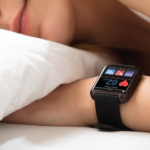Dr. Rodriguez’s wife was recently diagnosed with multiple sclerosis and rheumatoid arthritis, so he is now a care advocate, too. He has noticed firsthand how it sometimes takes people hours on the phone to navigate the system; “it’s a full-time job,” he said. “It’s given me a brand-new perspective,” including knowledge of how new technology often interferes with patients getting care.
Although a chatbot may be a great tool in the future, leaders first need to address what he called “analog challenges,” such as the dearth of interpreters, minimal use of them when they are available and not reimbursing them properly. “Our analog challenges don’t go away in digital spaces.”
Such traditional problems mark one reason why many patients need advocates, speakers said, especially as technology is quickly morphing healthcare. But patients also need to fight for themselves.
Sometimes patients’ providers are not the right ones for them, said Tanisha Armstrong, an advocate and graduate student who is battling a chronic autoimmune disease herself. But depending on where they live, they may not have the option to switch to another provider.
“We need to advocate for people to be advocates for themselves. If you can’t do that, then find somebody to be your advocate,” Ms. Armstrong said during a discussion with Mr. Crawford and Dr. Rodriguez. “We have to empower people all the time.”
The Patient Engagement Symposium is an annual event hosted by the NHC.
Ryan Basen is a journalist, writer and editor in Washington, D.C.


